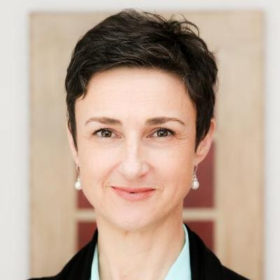- Calls to this hotline are currently being directed to Within Health, Fay or Eating Disorder Solutions
- Representatives are standing by 24/7 to help answer your questions
- All calls are confidential and HIPAA compliant
- There is no obligation or cost to call
- Eating Disorder Hope does not receive any commissions or fees dependent upon which provider you select
- Additional treatment providers are located on our directory or samhsa.gov
How to Know When ‘Healthy Eating’ Turns into Orthorexia

Melainie Rogers, MS, RDN, CDN, CEDRD
 Eating Disorder Hope: Welcome to today’s #EDHchat! Today we will be tweeting with @melainierogers how to know when healthy eating turns into orthorexia.
Eating Disorder Hope: Welcome to today’s #EDHchat! Today we will be tweeting with @melainierogers how to know when healthy eating turns into orthorexia.
Eating Disorder Hope: Please welcome Melainie Rogers, Founder of BALANCE ED Treatment Center @BALANCEedtc
Eating Disorder Hope: Melainie will be tweeting as @melainierogers
Eating Disorder Hope: Melainie, can you please tell us a little bit about yourself and your involvement in the eating disorder community?
Melainie: I am the Founder and Executive Director of BALANCE eating disorder treatment center and melainie rogers nutrition, llc.
Melainie: I received my education in Melbourne, Australia, where I was born and raised.
Melainie: I obtained my Bachelor’s degree in Biochemistry from Melbourne University and completed a Graduate diploma in Sports Nutrition from Deakin University
Melainie: Upon coming to the US, I earned my Masters degree in Clinical Nutrition at New York University
Melainie: In 2002, I developed the largest private group nutrition practice specializing in eating disorders in NYC.
Melainie: As I saw a need for more services for eating disorders, I established BALANCE eating disroder treatment center in 2009.
Eating Disorder Hope: Eating “clean” has been trending for some time. What might this term imply and what are the dangers associated with this concept?
Melainie: Eating clean means eating foods that are healthy, organic, usually locally sourced
Melainie: This could also be eating foods that do not contain antibiotics or hormones, and that if they contain fat, are comprised of health fat (nut/vegetable based fats)
Melainie: Eating clean has been taken to mean eating low to no fat, which can be disordered adn unhealthy.
Melainie: It also has become a pseudonym for low calorie eating, which can also be disordered
Melainie: Eating clean can become obsessive to the point that it is in fact unhealthy.
Melainie: It can also be disruptive to daily life if foods can only be eaten from certain stores, etc.
Eating Disorder Hope: How does a person know if their attempt to eat healthy has gone too far?
Melainie: One measure to know if an attempt to eat healthy has gone too far is the degree of obsessiveness and anxiety that is related to this style of eating.
Melainie: If a person is not able to tolerate eating out at a friend’s place for dinner…
Melainie: Or unable to eat any food other than what they themselves have cooked, for example…
Melainie: We know that this style of eating has gone beyond healthy and is more about anxiety.
Eating Disorder Hope: What is Orthorexia and how does this differ from Anorexia?
Melainie: Orthorexia is “perfect eating”, making sure that one is eating all of the “right foods”
Melainie: Perfect eating can mean that a meal must be made up of the “perfect amounts” of healthy protein, carbs, and fats…
Melainie: But also must have the maximum number of vitamins, minerals, antioxidants and super foods that one can put into one meal.
Melainie: It is obsessive. Often orthorexia is the same as clean eating, but taken to a disordered, disruptive degree.
Melainie: Orthorexia may not be about weight loss as is the case with anorexia.
Melainie: Anorexia is an obsession with low calorie eating and body weight.
Melainie: Orthorexia is about the quality of the food.
Melainie: We often find our anorexic clients proceed to orthorexic tendencies in their recovery and can often get “stuck” there.
Melainie: Same with clean eating…
Melainie: Thinking they are fully recovered bc they are eating food, but it is still obsessive and food is still not neutral.
Eating Disorder Hope: What types of people may be more at risk for developing Orthorexia?
Melainie: Orthorexia is more likely to be a risk factor for clients who are anxious.
Melainie: The anxiety gets focused on the food, and eating perfectly.
Melainie: Orthorexia is often seen in clients who are recovering from anorexia… but they never get to the stage of neutralizing all foods.
Melainie: Judgements are still very high.
Melainie: There can be moral superiority for those who pride themselves on eating perfectly or eating clean.
Eating Disorder Hope: What are some helpful interventions for a person dealing with Orthorexia?
Melainie: At Balance, we use a lot of exposure therapy to expose our clients to all types of food
Melainie: Everything from salad to burgers to sushi to fries.
Melainie: Our philosophy is that all foods fit
Melainie: To be fully recovered from an eating disorder, it is essential to get to a place whereby all foods are neutral…
Melainie: And where there is no moral or nutritional judgement attached to that food.
Melainie: It is about moderation, food enjoyment and pleasure, and eating what makes us feel good.
Melainie: Also it is helpful to work with eating patterns and belief systems. Clients believe that if they eat badly they are bad.
Melainie: If they choose unhealthy foods, they are bad.
Melainie: There is often a great deal of judgement and shame attached to food choices, when in reality, food is just food.
Melainie: Nothing more, nothing less! That is what being neutral with food really means!
Eating Disorder Hope: What encouragement might you share with an individual who wants to eat healthier without becoming obsessive?
Melainie: If eating healthier means eating more fruit and vegetables, but also includes all macronutrients – protein, fat and carbs – then I say go for it!
Melainie: Stay flexible and allow yourself fun foods, also to keep things in balance.
Melainie: Don’t restrict yourself to certain restaurants or only eating your own cooking.
Melainie: This can get rigid, restrictive, and obsessive really quickly.
Melainie: Eat from hunger, fullness, and satiety and not to a calorie goal – a sure fire way to get obessive!
Eating Disorder Hope: Can you tell us about the services offered through Balance Eating Disorder Treatment center for orthorexia sufferers?
Melainie: At BALANCE eating disorder treatment center, we have several levels of care available to clients who struggle with orthorexia.
Melainie: We have a full time day program of 30 hours per week of meals and therapy groups.
Melainie: We also have an evening program that offers a dinner meal and therapy group for 9 hours per week.
Melainie: For clients who need weekend support, we also have a Saturday day program that provides meals and therapy groups.
Melainie: Individual nutritional counseling is also available to help a client work through their food beliefs and obsessions.
Melainie: Our goal is to help clients move towards a more neutral relationship with food and their body.
Eating Disorder Hope: Thank you so much to everyone who participated in our Twitter Chat today with @melainierogers!
Eating Disorder Hope: Thank you again to our fantastic guest, Melainie, for joining us for this important conversation on Orthorexia.
Eating Disorder Hope: Please check out Balance Eating Disorder Treatment Center at http://balancedtx.com/ for more info about their program and eating disorder resources
Eating Disorder Hope: For more helpful eating disorder resources, visit www.eatingdisorderhope.com
Eating Disorder Hope: No matter where you may be today, be encouraged in your recovery journey and know that you do not walk alone. Take care everyone!

The EatingDisorderHope.com editorial team comprises experienced writers, editors, and medical reviewers specializing in eating disorders, treatment, and mental and behavioral health.

